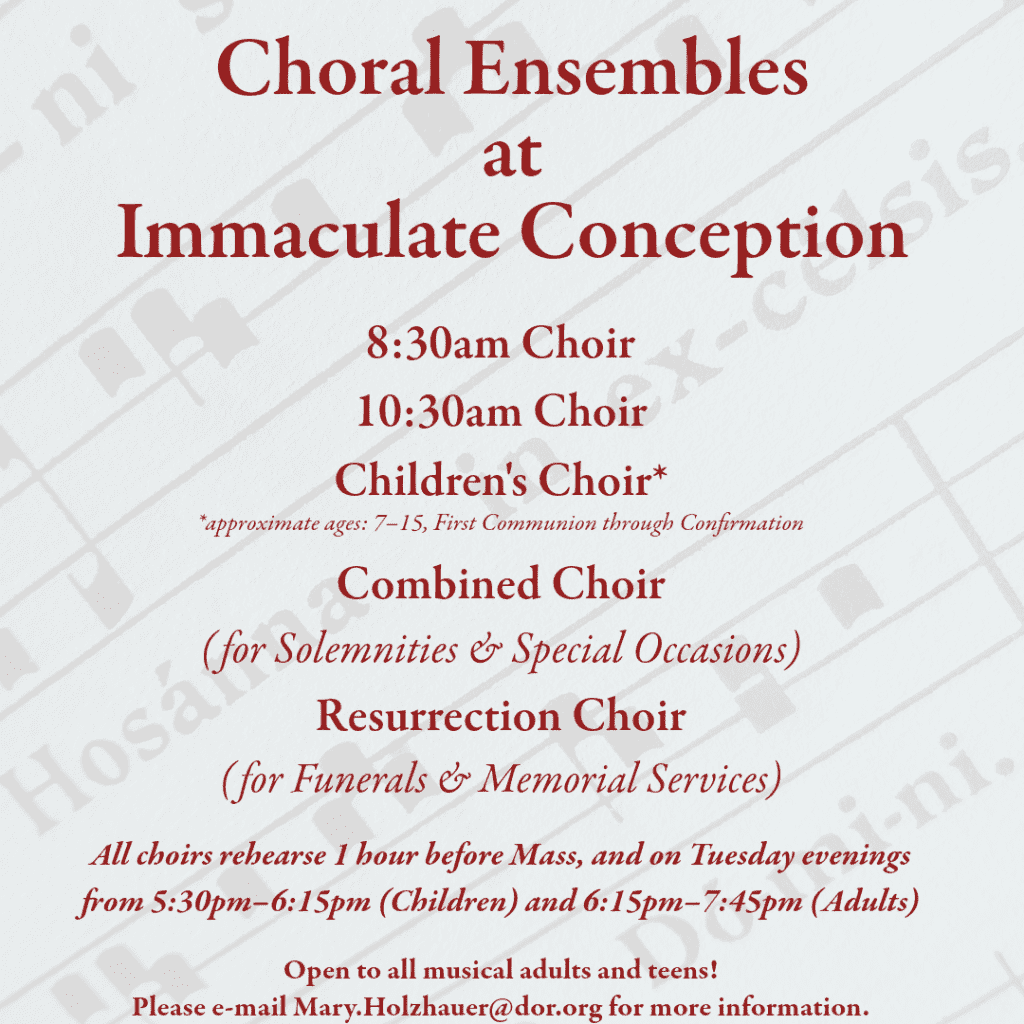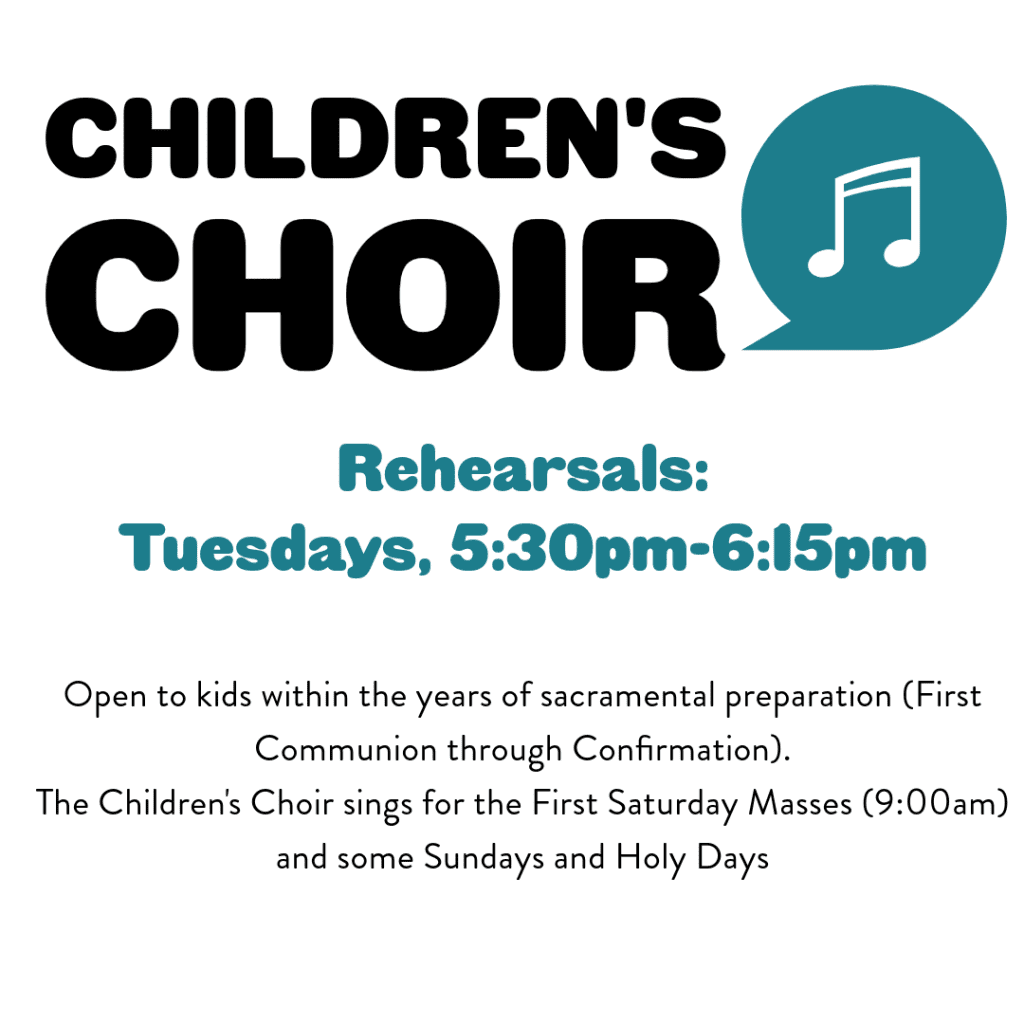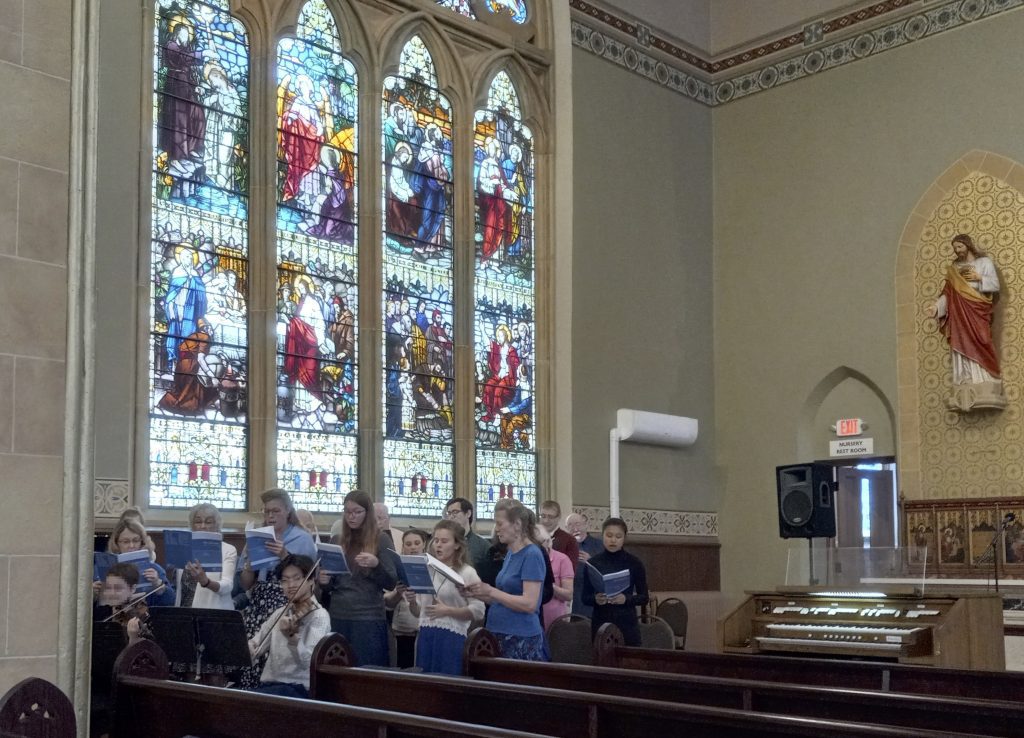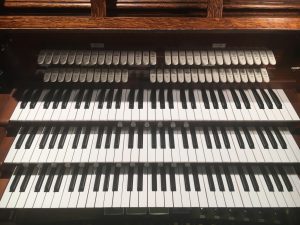Make a Joyful Noise to the Lord
Music Ministry

Mary Holzhauer
Director of Music
A versatile musician, keyboardist Mary Holzhauer regularly performs in a wide spectrum of styles and genres. She studied at the Eastman School of Music, Ithaca College, and Nazareth College, and has worked in the Diocese of Rochester for many years. In addition to being Music Director at Immaculate Conception, she is also on the faculty of Ithaca College and Opus Ithaca.
“Make a joyful noise to the Lord, all the earth; break forth into joyous song and sing praises.”
~ Psalm 98:4
For anyone who sings or plays a musical instrument, there are several ways to use your God-given gifts to enhance our liturgies here at Immaculate Conception. Please contact our Music Director Mary Holzhauer ([email protected]) for more information about how you can join one of our current ministries.
Certain ministries have weekly rehearsals, such as the choir, which meets from 6:15-7:45pm on Tuesdays, and on Sundays an hour before each Mass. Members of the choir sing at the Mass of their choice, and combine for major feast days such as Christmas & Easter. If your schedule precludes you from attending Tuesday rehearsals, you are invited to practice your part on your own and attend the Sunday rehearsals. Teens are welcome to join! Other ministries are scheduled, such as cantor assignments. Cantors must be fully initiated members of the Catholic Church, having received the Sacrament of Confirmation. All cantors must be approved by the Music Director. The Resurrection Choir ministers to the bereaved, singing for funerals & memorial services. Members of this ministry are notified about all funerals & memorial services that are held & meet for rehearsals an hour before each liturgy. Instrumentalists are always welcome, whether on a regular basis or when specific needs arise, such as instrumental obligato parts with the choir. Please contact the Music Director to join our roster of instrumentalists.
If you are interested in participating in the Music Ministry, please e-mail Music Director at [email protected].


Music Ministry Prayer
O God, our Father, we thank you for counting us worthy to stand in your presence to serve you in the company of angels and saints. Strengthen our weakness and pardon our negligence. Help us to fulfill worthily the ministry you have entrusted to us, that what we proclaim with our lips we may believe in our hearts, and what we believe in our hearts we may show forth in our lives. Through Christ our Lord. Amen.
The purpose of music ministry is to lead and coordinate the sung praise of the liturgical assembly, enabling it to speak as the voice of the Church, the Body of Christ. The harmony of music and the ritual action of singing together are icons of the Church’s mystical communion in Christ. “We, though many, are one body in Christ and individually parts of one another” (Romans 12:5–6). While the spiritual refreshment of individuals is frequently a fruit of liturgical song, the primary purpose of music in the liturgy is to enable the Church to worship as a community. The ministry and participation of each individual is subordinate to and directed toward that communal goal.
“He who sings, prays twice” (St. Augustine), but “the praise of God exists in the heart rather than on the lips” (St. Thomas Aquinas). This means that we should all always try to sing—particularly the psalms, the ordinary parts of the Mass (Kyrie, Gloria, Sanctus, etc.), and the responses (“Amen,” etc.)—but it is more important that we all have in our hearts the same intention, whether or not we are able to sing. “Even when listening to…the singing of the choir, the assembly continues to participate actively as they ‘unite themselves interiorly to what the ministers or choir sing, so that by listening to them they may raise their minds to God.’” (Musicam sacram, no. 15; Sing to the Lord: Music in Divine Worship, no. 12)
Thank you to our Amazing Musicians!
“Make a joyful noise to the Lord, all the earth; break forth into joyous song and sing praises.”
~ Psalm 98:4

Instruments
Our 1912 Tellers organ is a 29-rank, 4-division instrument. For more information, please see the Organ Historical Society database: https://pipeorgandatabase.org/organ/58669. We also have a Young Chang baby grand piano.
Choir Loft Photo Gallery




Photos by Matthew Hall, Rich Rasmussen, Anne Woodard